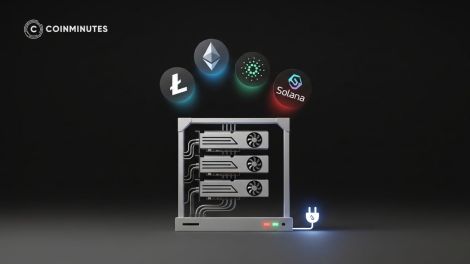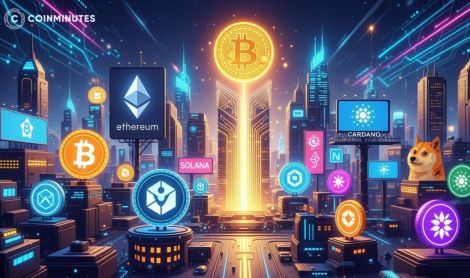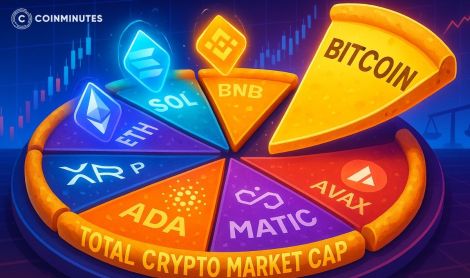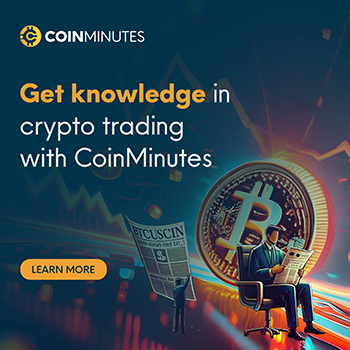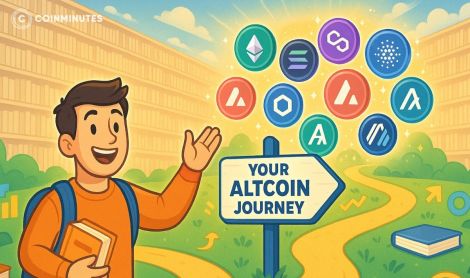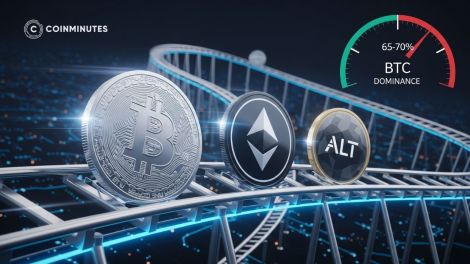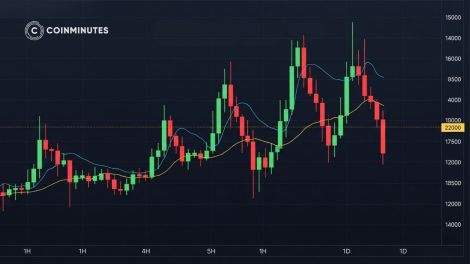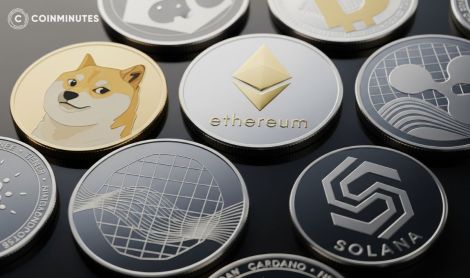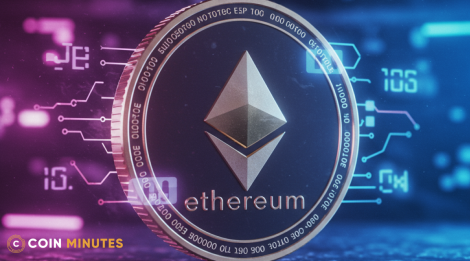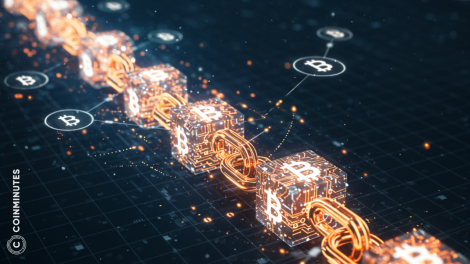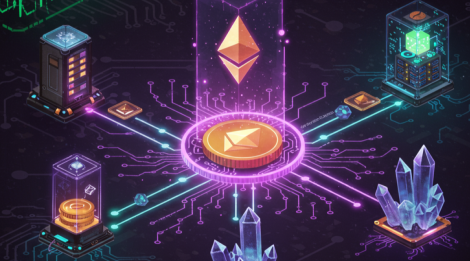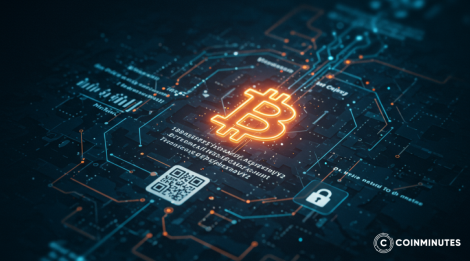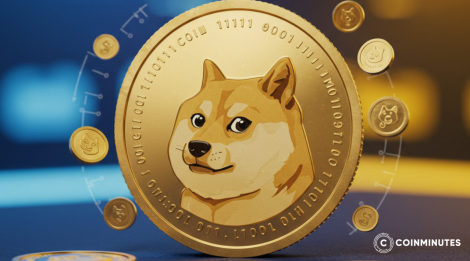How to Buy Altcoin Safely and Easily? The Complete Beginner’s Guide
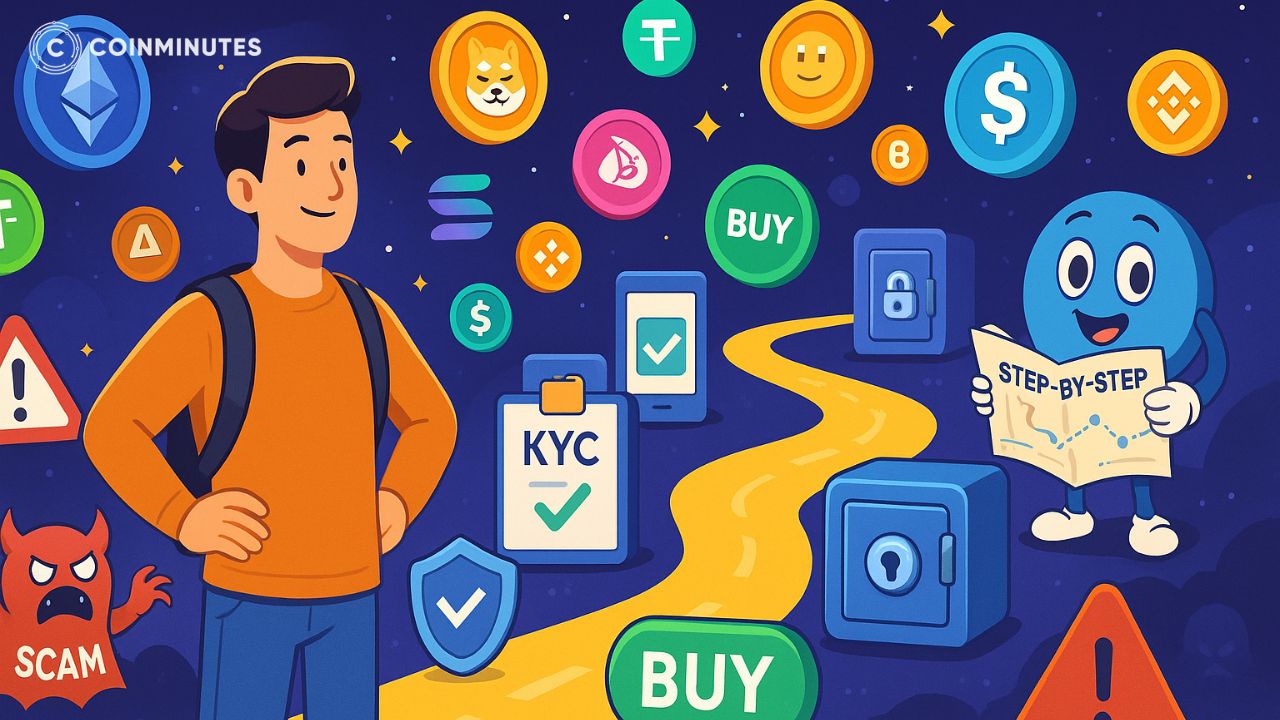
Alright, so you've decided to dive into the wild world of altcoins. Awesome.
You've probably heard the crazy stories—coins that pop off, cool new tech that could change the future, the whole nine yards. But then you hit the first big wall: how do you actually buy this stuff? Like, for real. Without getting totally confused or, worse, scammed. It feels way more complicated than it needs to be.
I promise, it's not.
This guide is your map. We're going to cut through all the noise and give you a simple, step-by-step game plan for buying your first altcoin. No confusing jargon, no hype. Just a straightforward process to get you from point A to point B safely.
Welcome to CoinMinutes. Let's do this.
Understanding Altcoins
Completely clueless about what you are investing in, don't you think it's better to know the product first? A couple of minutes of getting to know the topic will save you a fortune in the long run. I do say so.
What is an Altcoin?
The very thing that the term refers is what we are talking about. "Altcoin" is a brief form of "alternative coin."
It means the terms for all other cryptocurrencies besides Bitcoin.
Bitcoin is the first instance, the original one. It was the one to start the whole parade. Every single one of the thousands of other coins that came after it—from huge, world-shattering projects like Ethereum to that bizarre dog coin your cousin keeps talking about—is an altcoin.
Not all of them are raising their hands to be the next Bitcoin. A few want to be quicker or less expensive. The rest are aiming to be the basis of a whole new online world. Also, quite a few of them are simply digital experiments. The most important thing to hold on to is that "altcoin" is a huge group with an immense variety of different kinds of coins that all have their own ambitions, technology, and risks.
Types of Altcoins
You wouldn't say that you simply "invest in stocks". Instead, you would say that you invest in tech stocks, healthcare stocks, or whatever. Altcoins are just like that. You can't just say that you have invested in altcoins. You have to know the different flavors.
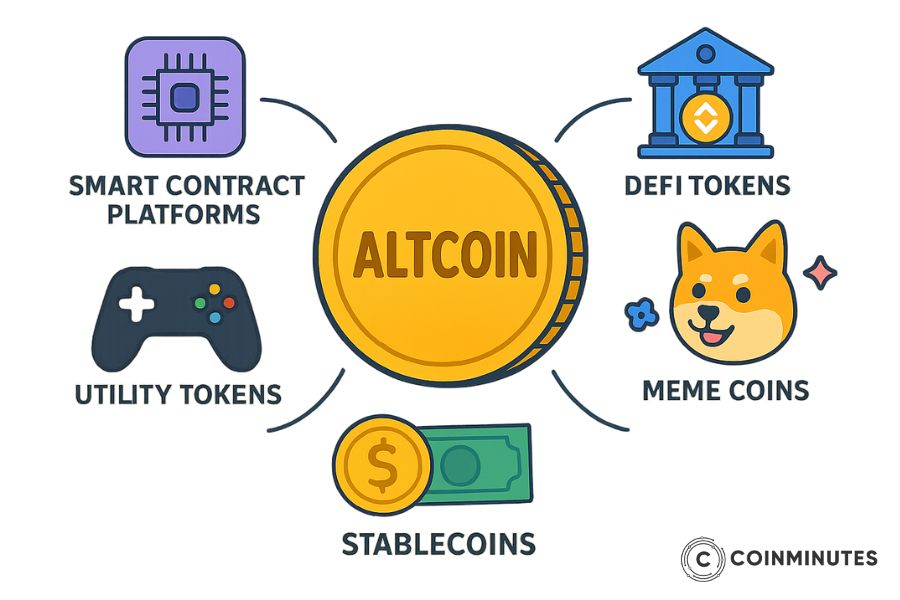
-
Smart Contract Platforms: These are the big dogs. The operating systems of the crypto world. Imagine Ethereum (ETH), Solana (SOL), and Cardano (ADA). They are the base platforms where developers introduce all the other amazing work.
-
DeFi Tokens: DeFi means "Decentralized Finance." These tokens belong to applications that are doing the usual banking activities i.e. lending, borrowing, and trading but there are no banks involved.
-
Utility Tokens: These are similar to arcade tokens. One must have them to play a particular game or access a particular service. For instance, Filecoin (FIL) can be a token that allows you to pay for the storage of your files on a decentralized network.
-
Meme Coins: You are familiar with these. Dogecoin (DOGE), Shiba Inu (SHIB), and a million others. They were literally considered as jokes at their inception. Their worth is almost entirely dependent on internet hype and community vibes. They're as much fun as they are dangerous. It's basically gambling.
-
Stablecoins: These are the "boring" but very essential coins in the ecosystem. They are constructed to be "stable" by being linked with a real-world asset, most of the time the U.S. dollar. Hence, one USD Coin (USDC) should always be worth approximately $1. They are a good abidance spot for your money in between trades if you do not want to be part of the crypto rollercoaster.
Why Invest in Altcoins?
Alright, so they are not only risky but also confusing. Still, why would anyone invest in them? The most common explanations of why it happens are usually a combination of seeking high profits and having faith in the technology.
Potential Benefits
Honestly, what mainly attracts people to the idea is the massive growth potential. Bitcoin has grown into a behemoth already. So for its value to double, it needs a huge amount of new buying. On the other hand, a small altcoin that is hardly known? If it gets to be popular, it can experience its price to increase exponentially in a manner that is just not available for Bitcoin any longer. These are the 10x or 100x returns that you come across. They cannot be compared to any other returns, so they are extremely rare, similar to one being able to find a needle in a haystack made of other needles, but still, they occur.
Moreover, another positive aspect is diversification. Betting on Bitcoin with all your money is a very concentrated way of doing it. You may consider distributing your investment among various types of altcoins, for example, a platform coin, a gaming token, and a DeFi project so as to balance your risk. Even though the overall market tends to be synchronized, different sectors may have periods of their own to prosper.
And the last point is that it is an opportunity to get in at the ground level of a new technology. The altcoin universe is where the experimentation is happening. When you believe in decentralized social media as the future or in the growth of crypto gaming, then you can put money into the projects that are really making it happen.
Key Risks to Consider
Now for a healthy dose of reality. Altcoins are the definition of high-risk, high-reward.
The number one risk is volatility. I am not exaggerating when I say an altcoin can lose 30% of its value while you're making lunch. It is a brutal, stomach-churning experience. A 2024 report from the blockchain analytics firm Chainalysis highlighted that crypto-related crime, including scams and hacks, still accounts for billions of dollars in losses annually. This shows how dangerous the environment can be if you're not careful. You have to be okay with watching your investment get cut in half, or even more.
The next risk is that most of these projects will simply fail. Think of every altcoin as a tiny tech startup. And what do most startups do? They go out of business. They run out of money, their tech doesn't work, or a better competitor comes along. The crypto graveyard is filled with coins that were once in the top 100.
And of course, there are the scams. Because this space is new and not fully regulated, it's a paradise for scammers. They create coins with no purpose, use social media to hype them up, and then disappear with everyone's money. This is called a "rug pull," and it happens every single day.
So here's the golden rule, and I want you to repeat it to yourself: Never, ever invest more money than you are willing to lose completely.
Preparing to Buy Altcoins: What You Need
Before you can click that "buy" button, you need to get your gear in order. There are two things you absolutely need before you start.
Setting Up a Secure Wallet
This is the most important part of the entire process. Get this right, and you're ahead of 90% of beginners.
A crypto wallet is where you'll store your coins. You need one that you, and only you, control. There are two main kinds:
-
Software Wallets (or "Hot Wallets"): These are apps you can get for your phone or computer. The most popular one is MetaMask, which is a browser extension. They're called "hot" because they're always connected to the internet. They're super convenient for day-to-day use, but that also makes them more vulnerable to hackers. A hot wallet is like your real-life wallet that you keep in your pocket—great for a little bit of spending cash.
-
Hardware Wallets (or "Cold Wallets"): These are small physical devices, made by companies like Ledger or Trezor, that look like a fancy USB stick. They're called "cold" because they keep your crypto keys stored completely offline. This makes them incredibly secure. A hardware wallet is your personal bank vault.
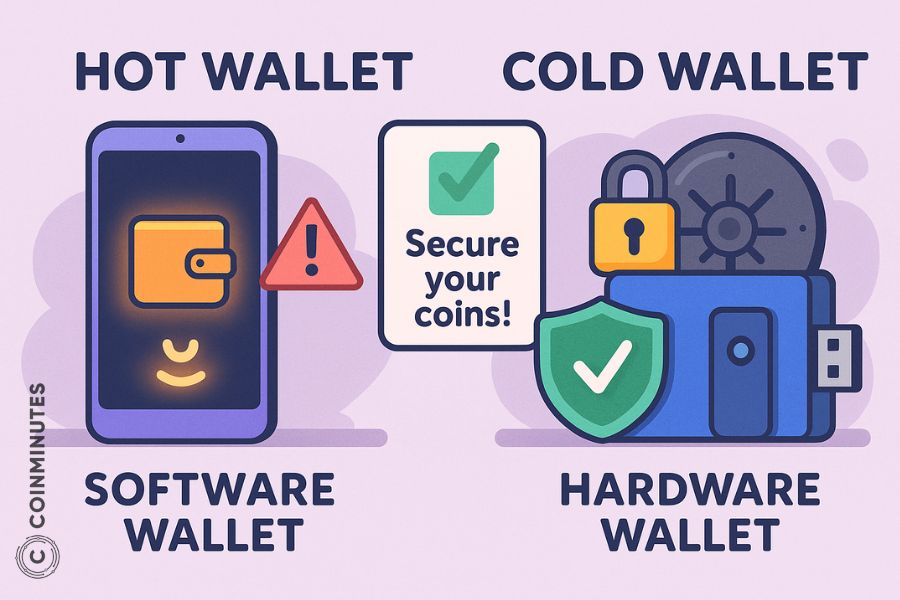
My personal advice? If you're going to invest more than a few hundred dollars, a hardware wallet isn't optional. It's a must-have. Just buy one.
Understanding KYC and Regulation
Gone are the days when you could buy crypto with just an anonymous email. The major exchanges are now regulated businesses, and they have to follow the rules. That means they need to know who their customers are.
This process is called Know Your Customer (KYC).
To get verified on an exchange, you'll have to provide some personal info, including:
-
Your name, address, and birthday
-
A picture of a government ID, like a driver's license
-
Probably a selfie to prove you're a real person
It's a bit of a pain, I know. But it's a good thing. It helps prevent illegal activity and gives you, the consumer, some level of protection. Using an exchange that follows KYC rules is a sign that they're a legitimate business.
Step-by-Step Guide: How to Buy Altcoin Safely and Easily
Okay, prep work is done. You have your secure wallet ready to go, and you're ready to get verified. Here's the simple, five-step playbook for buying your first altcoin.
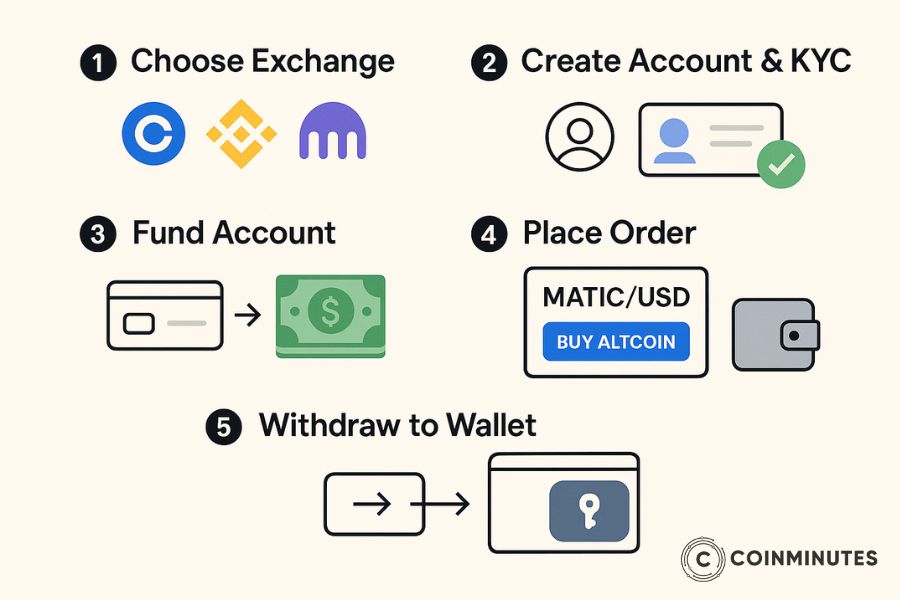
Choosing a Reliable Crypto Exchange
A crypto exchange is just the store where you go to buy crypto. There are hundreds of them, but you should absolutely stick to the big, well-known ones when you're starting out.
-
Centralized Exchanges (CEXs): These are companies like Coinbase, Binance, and Kraken. They're run like normal businesses and are your best bet as a beginner. They're easy to use and connect directly to your bank account.
-
Decentralized Exchanges (DEXs): These are platforms like Uniswap. They're not run by a company but by code on the blockchain. They have way more coins, but they're also way more complicated. Leave these alone until you're more experienced.
Action Step: Go sign up for an account on a major, reputable CEX like Coinbase. It's one of the most beginner-friendly options out there.
Creating and Verifying Your Account
This is pretty straightforward. You'll sign up with your email and then start the KYC process. Have your driver's license handy.
But please, do two things here. First, use a strong, unique password that you don't use anywhere else. A password manager can help with this. Second, turn on Two-Factor Authentication (2FA) immediately. This adds a crucial layer of security to your account. Use an app like Google Authenticator, not just SMS.
Funding Your Exchange Account
Now you need to put some cash in your account. You can usually do this with a bank transfer or a debit card. A debit card is usually faster but has slightly higher fees.
Action Step: Connect your payment method and deposit a small amount of money to start. Seriously, start small. Maybe $50 or $100. Something you would be sad, but not devastated, to lose.
Placing Your First Altcoin Order
This is the fun part. You have money on the exchange, and you're ready to pull the trigger. Let's say you want to buy some Polygon (MATIC).
- Step 1: Find the "Trade" or "Market" section on the exchange.
- Step 2: Search for the coin you want. Since you deposited dollars, you'll be looking for the MATIC/USD pair.
- Step 3: You'll see a couple of order types. For now, just focus on Market Order. This is the simplest option. You just type in how much money you want to spend (e.g., $50), and it buys the coin for you instantly at the current market price.
- Step 4: Click the "Buy" button and confirm the transaction.
And that's it. You've done it. You now own your first altcoin.
Withdrawing Altcoins to Your Wallet
DO NOT SKIP THIS STEP.
I know it's tempting to just leave your shiny new coins sitting on the exchange. It seems easy. But it's also the single biggest mistake beginners make.
When your coins are on an exchange, you don't really control them. The exchange does. If they get hacked, go bankrupt, or just freeze your account, your coins could be gone. The only way to truly own your crypto is to hold it in your own wallet.
Here's what you do:
- Step 1: Go to the "Withdraw" section of the exchange.
- Step 2: Select the coin you just bought (MATIC).
- Step 3: Open your personal wallet (the one you set up earlier) and find your "Receive" address for that coin. It will be a long string of letters and numbers.
- Step 4: Copy that address. Be very careful.
- Step 5: Paste that address into the "withdraw to" field on the exchange.
- Step 6: Enter the amount and confirm. Always send a small test amount first! Send like $5 worth. Wait for it to show up in your personal wallet. Once you confirm it arrived safely, you can send the rest.
Safety Tips for Buying and Storing Altcoins
The crypto world is full of people who want to take your money. You have to be paranoid. Here are the most important rules.
Protecting Your Private Keys and Seed Phrases
Your seed phrase (those 12 or 24 words) is the master key to all your crypto.
-
NEVER share it. Anyone who asks for it is a scammer. Full stop.
-
NEVER type it into a computer or phone. Don't save it in a text file, don't email it to yourself, don't take a picture of it.
-
Write it down on paper and hide it somewhere safe. Or better yet, stamp it into a piece of metal. Make multiple copies and hide them in different places.
If you lose your seed phrase, your money is gone. If someone else finds it, your money is gone.
Avoiding Common Scams and Phishing Attempts
Scammers will try to trick you into giving them your information. They will send you fake emails that look like they're from Coinbase. They will DM you on Twitter or Telegram pretending to be customer support. They will post fake giveaways from "Elon Musk."
It's all fake. Trust no one. Never click on suspicious links.
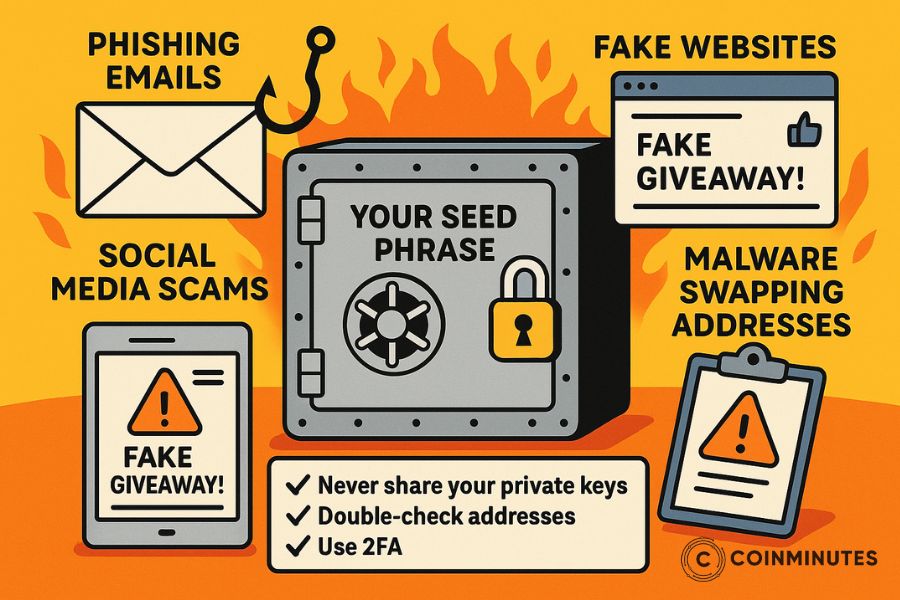
Secure your assets and avoid scams when buying altcoins
Double-Checking Addresses and Transactions
When you send crypto, the transaction is final. There's no "undo" button. Before you hit "send," always double-check the first 4 and last 4 characters of the wallet address you're sending to. There is malware that can change the address you've copied without you realizing it.
Using Two-Factor Authentication and Strong Passwords
I'm saying it again because it's that important. Use a unique password and set up 2FA using an app like Google Authenticator on every single crypto account you have.
Managing and Tracking Your Altcoin Investments
Once you own a few different coins, it gets messy trying to keep track of everything.
Best Portfolio Tracking Tools and Apps
Get a portfolio tracking app like CoinGecko or CoinMarketCap. You can manually enter how much of each coin you own, and it will show you the total value of your holdings in one place. It's a lifesaver.
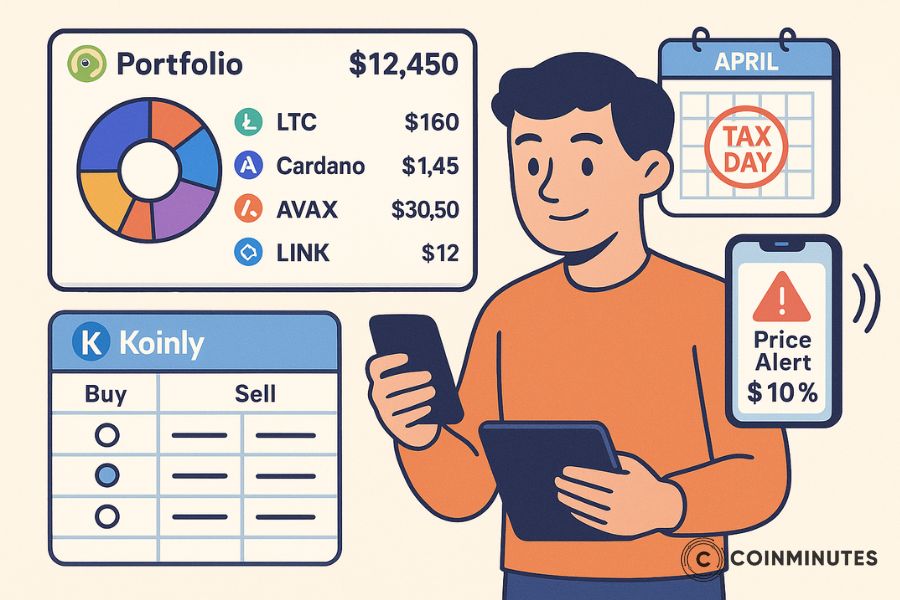
Setting Up Alerts and Price Notifications
Most of these apps also let you set price alerts. You can get a notification on your phone if a coin you're watching hits a certain price. This is great for reminding you to buy or to take some profits without having to stare at charts all day.
Keeping Records for Tax and Personal Management
This is the part nobody likes, but you have to do it. In most countries, trading crypto is a taxable event. You need to keep records of what you bought and sold, and at what price. A crypto tax service like Koinly can automatically sync with your exchanges and make this process a thousand times easier.
The Bottom Line
It is a major move to buy your first altcoin. Although the procedure is not complicated, it is a process that requires you to be cautious, doubting, and mature in your decisions.
The hardest part of the whole process is not knowing how to press the "buy" button. The thing is to be your own bank and your own security chief.
Take a very small step first. Be inquisitive. Don't be afraid to question. And most importantly, always keep the risks in mind. The crypto world is a thrilling new territory for you. However, you need to find a way to shield yourself. CoinMinutes is the place where you get straightforward and honest information that helps you to be just that. We wish you good luck!
 English
English
 Vietnamese
Vietnamese

